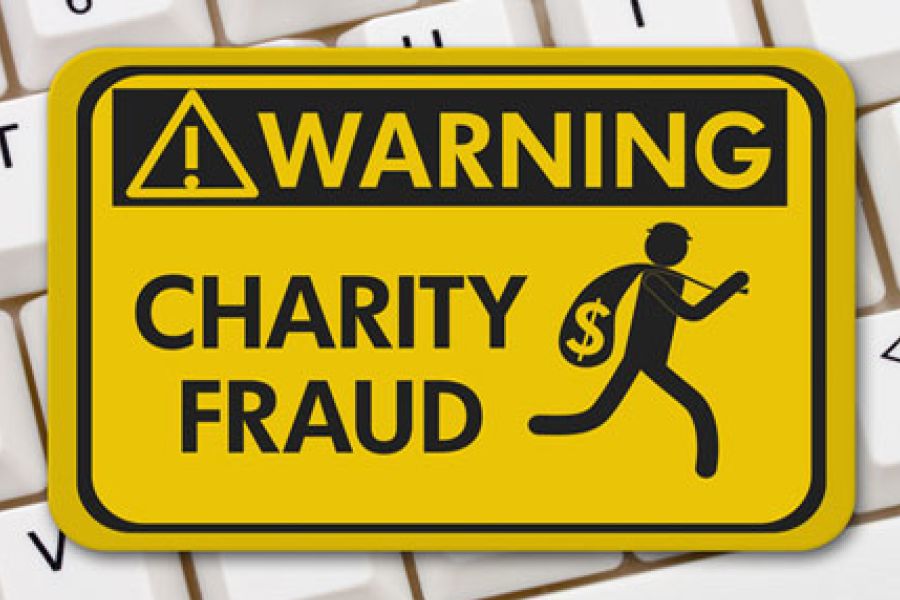Most fraud-prevention guidance advises owners and manager to monitor employees. But what exactly does this mean? Are you legally entitled to monitor employee computer use? What about security cameras in the workspace? Can you search an employee’s desk if you suspect the person is hiding something? The simple answer is that to stay on the right side of the law when fraud is suspected, your business must be careful about invading employee privacy. Their rights Many employment laws apply to employees’ privacy rights. In general, they attempt to balance employers’ interests in minimizing losses and injuries and maximizing production with employees’ interests in being free from intrusion into their private affairs. By adopting and clearly communicating employment policies, your company can, within limits, establish its authority to conduct...

Americans generally feel generous during the holidays and usually are eager to donate to worthy charitable causes. At the same time, they’re so busy and rushed with holiday activities they don’t necessarily vet charities that ask for support. Unfortunately, the holidays are the season for charity fraud. Fraud perpetrators masquerading as non-profits usually find easy pickings. Charity scammers use every available channel to defraud charitable donors — door-to-door appeals, telemarketing campaigns, email messages, slick looking websites and even through social media “friends.” To ensure your donations reach the genuinely needy, exercise healthy skepticism and take precautions. Know your non-profit The best and easiest way to avoid becoming a charity scam victim is to donate only to charities you already know and trust. However, by doing this, it’s possible...
According to data company Dun & Bradstreet, business identity theft increased more than 250% in the first half of 2020. You can thank the pandemic — and the government’s release of relief and recovery funds to qualified U.S. businesses — for this remarkable number. In a more typical year, crooks use stolen business identities to file fraudulent tax returns, apply for credit and empty bank accounts. Is your business vulnerable? However they might try to use your company’s information, there are steps you can take to reduce the risk. Protecting sensitive information Thieves often use malware to infect computers and gather sensitive data from businesses. They also create fake websites that trick employees into entering login and password information. To protect against these tactics, deploy patches when...
These days, many offices and other workspaces are nearly empty as employees work from home. This can make companies that don’t safeguard their computers, printers and other equipment vulnerable to theft from outsiders. Even during normal times, businesses often lose assets because crooked employees walk out with them. Here’s how to protect valuable property — no matter who’s eyeing it. Asserting ownership First, claim your business’s assets. This means adding security plates and indelible identity markings to machines. These additions can help you track stolen equipment, inhibit resale and discourage thieves from trying to steal in the first place. Security software can help you track stolen computers online. As soon as the thief connects to the Internet, the computer’s software contacts a security firm’s monitoring system, which traces...
Management overrides of internal controls can make your company more vulnerable to fraud. This is true even when managers have innocent intentions — for example, they don’t feel they have time to follow proper accounts payable procedures because a vendor is requesting immediate payment. Your company is at even higher risk of fraud losses . . . controls are ineffective . . . if a senior manager intentionally ignores the rules to manipulate financial statements. Warning signs Management overrides of financial controls can be difficult to detect. However, there are several warning signs that a manager isn’t fully adhering to the policies and procedures your organization has adopted. For instance, a manager may fail to call attention to business risks or dispute an auditor’s findings regarding his...
Ghost employees and other payroll scams are trouble for employers. They may be just as fictional as the paranormal activities in your favorite scary book or movie, but if you have ghost employees on your payroll, you have fraud. And if you have fraud, you have potentially significant financial losses. Anatomy of a scheme Ghost employee schemes usually are perpetrated by employees who have easy access to payroll records. If your company’s internal controls are loose enough to be exploited, a greedy or disgruntled staffer could invent an employee, put this “person” on the payroll and direct deposit paychecks to a bank account in the ghost’s name. It may seem like it would be easier to hide ghost employees in large companies. In fact, small businesses, where a...
Forensic accountants are engaged for a wide variety of assignments, among them investigating fraud, auditing internal controls and quantifying damages associated with legal disputes. All of these require attention to detail and a diverse set of skills including mathematical, technological, legal and investigative. But the accounting landscape and client needs are constantly changing. Here’s how the profession has adapted and digitized 21st century forensic accounting, and how it's applying the latest technological solutions. Embracing the digital revolution Technology has radically changed how forensic accountants do their jobs. Businesses used to be awash in paper. Today, most companies run on a digital backbone and discourage employees from printing to save money and reduce environmental damage. Consequently, forensic accountants must be able to gather, analyze and make sense of...
Not all shell companies are dishonest. Despite their often-sinister reputation, these paper-only companies may be used legitimately to hold another business’s assets. Or they may be the “empty container” left after a company downsizes or is acquired. That said, some fraud perpetrators use shell companies to embezzle funds, evade taxes, dodge debts and commit other illegal acts. For many businesses, the biggest threat posed by illegitimate shell companies is that unscrupulous employees will use them to perpetrate billing fraud. Here’s how to spot a shell scheme in your midst. Under cover Employee-perpetrated shell company schemes take one of two forms. In the first, an employee sets up a shell company to send out — and collect on — fictitious bills. Perpetrators don’t have to send the bills for...
The COVID-19 pandemic has put enormous pressure on medical practices and healthcare workers. The last thing they need right now is to worry about financial losses and other negative repercussions of occupational fraud. So that physicians and their employees can focus on patient care, they should take a little time now to ensure strong internal controls are in place. Elements of embezzlement According to the Association of Certified Fraud Examiners, embezzlement is the most common form of occupational fraud in medical practices. For example, crooked employees might: Steal receipts or cash on hand, Alter or forge checks, Submit fictitious invoices, Pay personal expenses with practice funds, or Cheat on their expense reimbursement requests. Unfortunately, the complexity of medical practice paperwork discourages many physicians from involvement in the administrative...
Management consulting company McKinsey reports that synthetic identity theft is growing fast. In fact, it's the fastest growing financial crime in the United States. And a LexisNexis Risk Solutions study has found that 20% of ID theft losses by banks can be attributed to synthetic versions of the scheme. If you’re unfamiliar with synthetic ID theft, you should know that it’s not — as its name might imply — a weaker, less “real” form of fraud. In fact, it tends to be much harder to prevent and detect. That’s because all a perpetrator needs to create an identity for criminal purposes is a Social Security number (SSN). Frankenstein monsters Traditionally, identity theft occurs when a thief gets hold of someone’s personal information and uses it to assume his...











